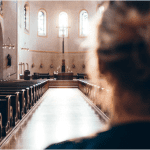Churches have been one of the most significant resources for the homeless population. They give away food, and some let homeless people stay in the church during adverse weather. One church in Tallahassee, Florida, City Walk Urban Mission, tried to set up transitional housing for the homeless during the COVID-19 pandemic. Sadly, local officials disagreed with the program.
The church and religious mission were technically permitted to run a temporary cold-night shelter for homeless people in November 2020. Still, they couldn’t get the permit they needed to increase their operation months later.
Some neighbors weren’t pleased to be living by a homeless shelter either. However, the group went on anyway. Renee Miller, the mission’s executive director, told the Tallahassee Democrat, “This is obedience to God. He’s told me to do it, and until he tells me to stop, I will not stop.”
What happened next would snowball the issue into something bigger. City Walk ended up suing both the City of Tallahassee and the Tallahassee-Leon County Planning Commission for denying its permit application in February. According to City Walk, both entities violated the group’s First Amendment rights to free speech and religious expression.
Gary Edinger, an attorney for City Walk, said, “For people who are deeply religious and really feel it, the idea is that in many ways they try to follow Christ’s example on Earth. Christ preaches charity and good works to the less fortunate, and that’s what these folks do as a matter of faith. It’s not just a private thing for their own benefit or even for the benefit of their congregation, but the idea is that they’re an example for the community.”
Sadly, this argument isn’t new. In recent years, anti-poverty activists and religious groups have repeatedly argued that serving the homeless population is a necessary constitutional right. They claim giving money or food can be a means of political expression or that providing shelter when someone doesn’t have any can show a commitment to one’s faith. This argument has continued because cities are constantly building barriers to helping the poor.
Homeowners and politicians nationwide have worked together to block shelters, shut down food services, build “hostile” architecture, and pass laws to criminalize bedding outright down or asking for money in public. They often claim that more charity could lead to crime, decreased property values, or overall lower quality of life. For example, a church in Brookings, Oregon, recently made national news for its pledge to defy a new local ordinance that restricted its ability to feed homeless people to only two free meals a week.
According to Oregon Public Broadcasting, people living around the church complained, and Brookings officials said they had the authority to limit meal programs because the church services are legally treated like restaurants, which aren’t allowed to operate in residential areas. The newly created permit, which didn’t allow for all-week services, at least let the meal programs continue, albeit far less often.
As a Christian, you’ll always want to help others and advocate for the less fortunate. Sadly, there are laws in place preventing you from doing so, but you shouldn’t let that stop you. You must continue to help the less fortunate, as long as it’s within the law because Jesus would do the same. God’s light will continue to shine on you, and you’ll be rewarded for your excellent work.



